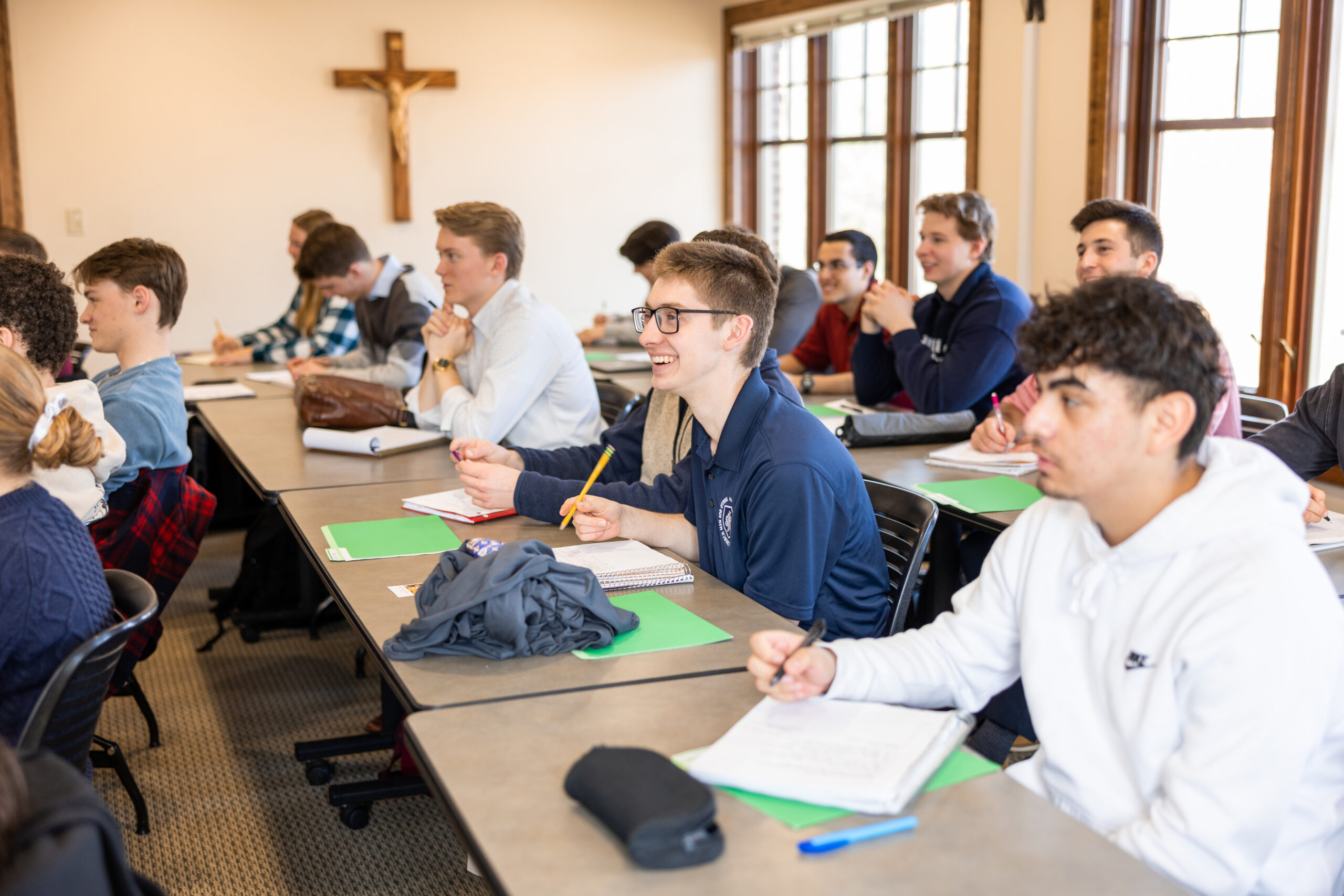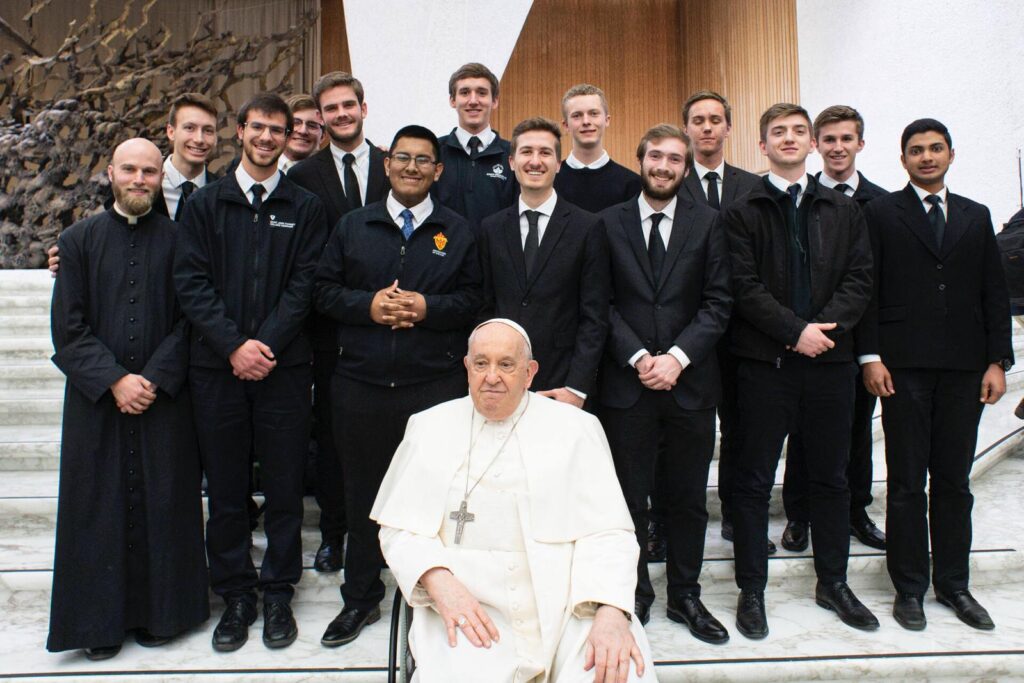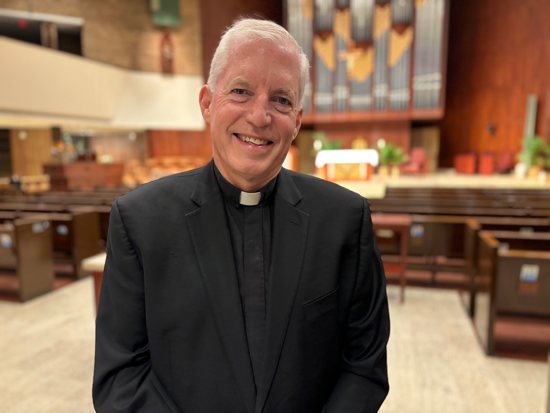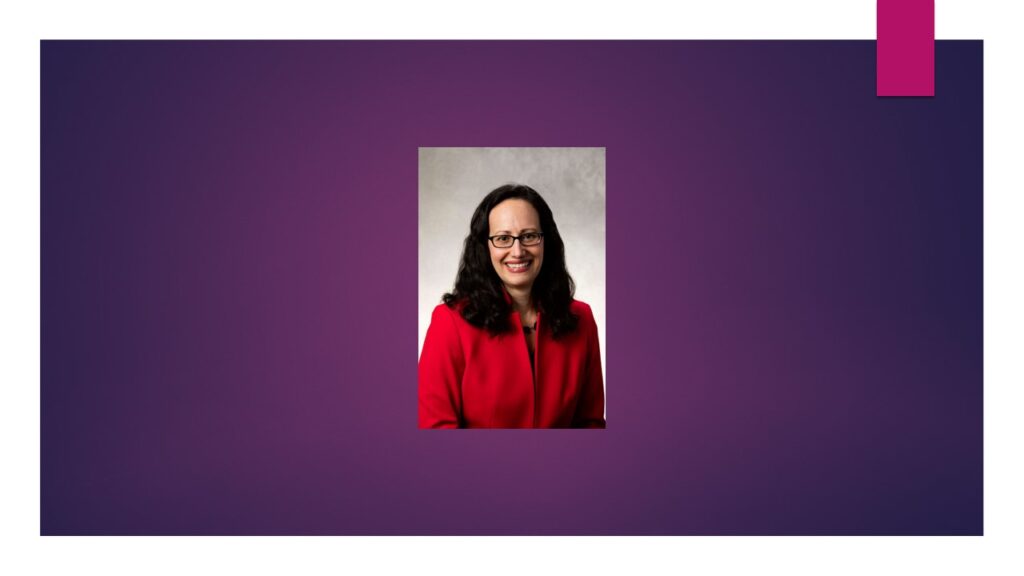On Tuesday and Thursday mornings, Dr. Erika Kidd teaches an 8 o’clock class on the Virgin Mary to a group that includes many seminarians from Saint John Vianney College Seminary (SJV).
“The comradery of the seminarians brings joy and levity to the classroom,” she said. “It is a blessing to witness their love for the Church and their vocational discernment. Their example encourages each of us to be attentive to how the Lord is leading us.”

“I appreciate their willingness to ask questions and even challenge me on occasion,” said Dr. Bob Kennedy. “I would like to think that their experience in Catholic Studies classes helps to move them from what they know in the abstract to what they live in person.”
Mutual sharing is a common theme in talking about the partnership between Catholic Studies and SJV. A major in philosophy is required, but 95% of today’s SJV men double major in Catholic Studies.
That close partnership has grown organically since the mid-’90s, through the tenure of four rectors of SJV: Father (now-Bishop) Peter Christensen, Father William Baer, Father Michael Becker, and Father Jonathan Kelly. It began with a single class co-taught by Dr. John Boyle and Christensen for SJV men, grew to include integrated classes and the Rome program with other Catholic Studies students, and eventually to the usual path of a double major.
The USCCB guidelines, Program of Priestly Formation, includes a liberal arts requirement and as SJV Rector Father Jonathan Kelly explained, “Catholic Studies is exactly what the documents in seminary formation are about: a holistic and integrated liberal arts education that presents the Incarnation as the foundation of the human person.”
The human side of the church
“It’s good for everybody,” said Boyle. Seminarians studying alongside students discerning other vocations shows “the fullness of the Church, its breadth and richness.” The fruit can be seen in “lifelong, warm, and appropriate friendship between former classmates. I’m always hearing about priests officiating weddings and baptisms for their friends’ families.”
SJV Formation Adviser Father Colin Jones ’14 agreed: “The Catholic Studies community offers our men some of the most impactful, transformative relationships they have at St. Thomas, second only to the fraternity they have here at SJV.”
For Father Marcus Milless ’10, pastor of St. Helena’s in south Minneapolis, Catholic Studies helped him feel more integrated into campus life at St. Thomas. Seeing other “students who were striving to live out their faith in a beautiful way gave me hope that I wouldn’t be alone in helping build up the Kingdom of God and that there would be lay people there to help me in this great endeavor.” Milless still stays in contact with Catholic Studies friends that include a professed sister, laypeople dedicated to their home and parish life, a brother in mercy ministry, and a spiritual director. “I found true and authentic friendship.”
What do bishops and prospective seminarians think?
“Our sending bishops love Catholic Studies,” SJV Vice-Rector Father Jim Olofson ’14 said, “because it helps the seminarians wrestle with important questions of faith and culture, in a place that remains faithful to the Church and knows the riches of Her tradition.”
Jones added, “Bishops want their seminarians in the classroom with faithful, dynamic Catholic professors who will immerse them in Catholic culture. Catholic Studies is just what those bishops are looking for.”
When Andrew Rydlund ’15, ’23 J.D./CSMA was considering SJV, he said, “the Catholic Studies program was not on my radar as I discerned … but once I arrived at SJV, it only took moments to realize how deep the relationship ran and I was swept into it in short order.”

Milless too said that though Catholic Studies was not why he decided on SJV, the encouragement to double major “was a decision that helped me remain on course as I was really interested in going to Rome.”
The Rome semester
“Some of the greatest fruits from Catholic Studies come from the storied Rome program,” said Olofson. “After their semester in Rome, learning from the Holy Father, the saints, and the martyrs, they return to SJV as seniors ready to lead the community and share with the rest of the men the beauty of an abundant Catholic life.”
Jones added, “We want as many of our men as possible to have that experience.”
Jack Massmann ’24 said the Rome semester was stretching, as he and other SJV men stayed at the Irish College with a collection of priests from all over the world. It “taught me the beautifully inconveniencing power of fraternal charity.”
“The experience of being removed from my native culture allowed the Lord to gently expose my weaknesses and limitations while also showing the immense strength that he can give in times
of discomfort and trial.” Massmann also went on the Catholic Studies J-Term trip to Mexico which was likewise a time of growth as it “broadened my mind regarding the complexities of culture and the importance of a truly enculturated evangelization.”
A rich and ongoing harvest
Rydlund credited his Rome semester with powerful growth through a course on moral theology with Father Wojciech Giertych, OP, from an unconscious “white-knuckling Pelagianism” to a realization that “the interior freedom of the saints flowed from God’s work within them. My relationship with God and my need for him shifted in an important way.”
Rydlund’s connection to Catholic Studies continued when he decided to go to law school and was encouraged by Boyle to choose the joint J.D./CSMA program. “That conversation left no doubt in my
mind that earning a Catholic Studies master’s degree alongside my J.D. would enrich my legal studies and future legal career.” Now an attorney and the new vice president for advancement and legal at Saint Paul’s Outreach, he said, “So far, that has proven true on every level.”
The rich harvest of the partnership between Catholic Studies and SJV keeps multiplying. Jones recalled one second-year seminarian who took “seemingly every chance he could” to bring up something from SJV alumnus Father Austin Litke ’04, OP’s Catholic Vision class. “It was such a grace as a formator to see a seminarian so moved by something he was learning intellectually that it was completely transforming his prayer, his conversation and his daily life.”
That is the fruit of seminarians’ integration with Catholic Studies. As Olofson summed it up: “They begin to see how an authentic Catholic worldview can shape how they see the world, engage the culture, foster holy friendships, and work to build up the kingdom of God.”
This story is featured in the spring 2024 issue of Lumen.







